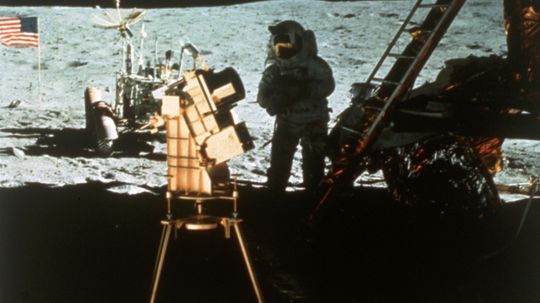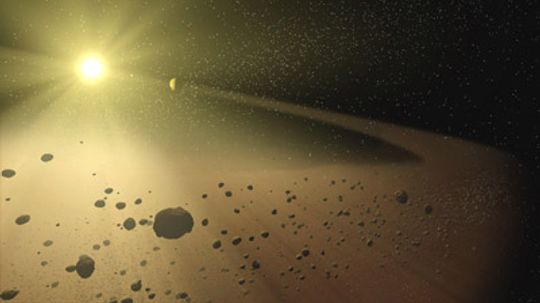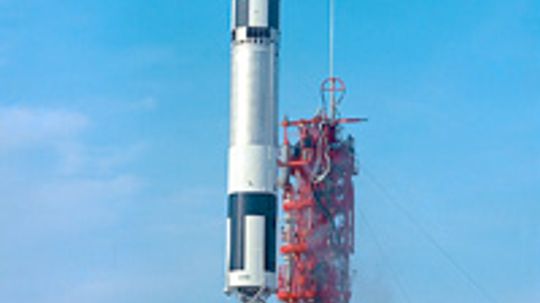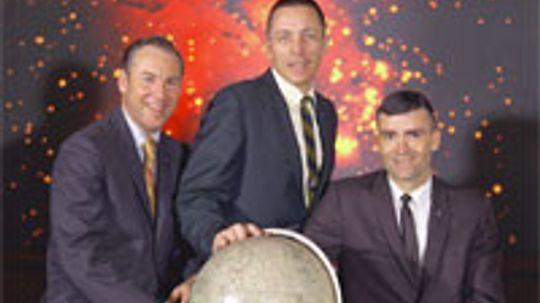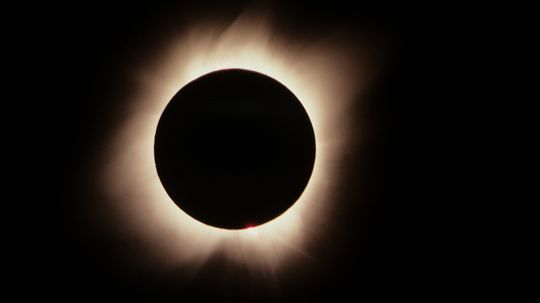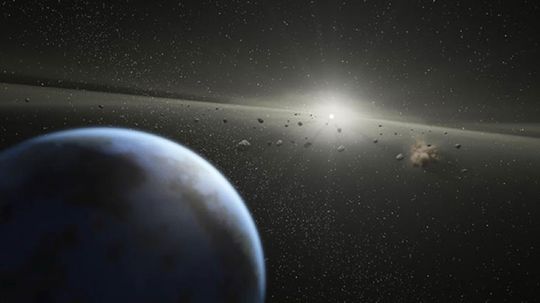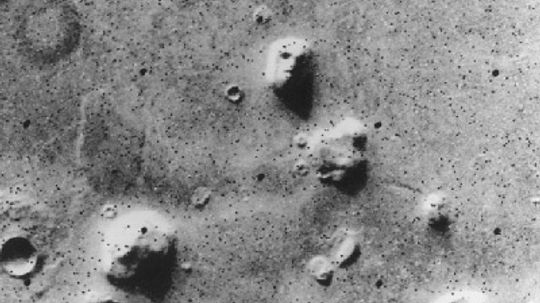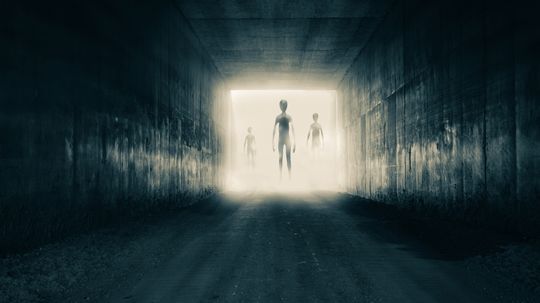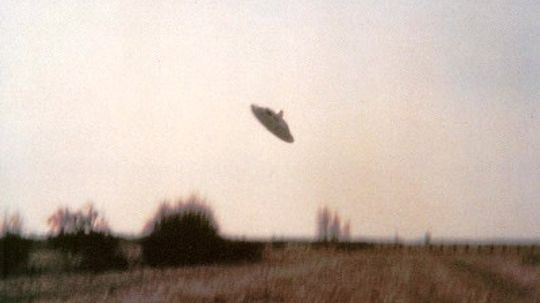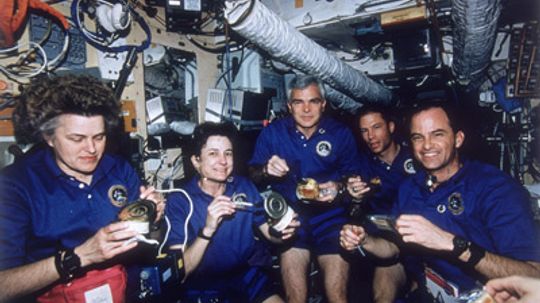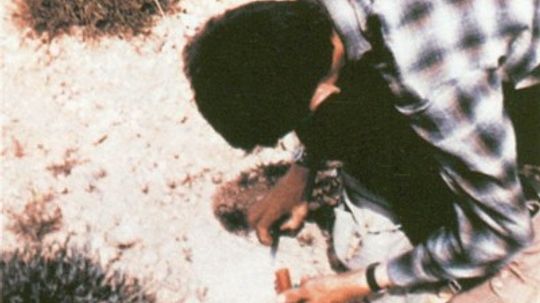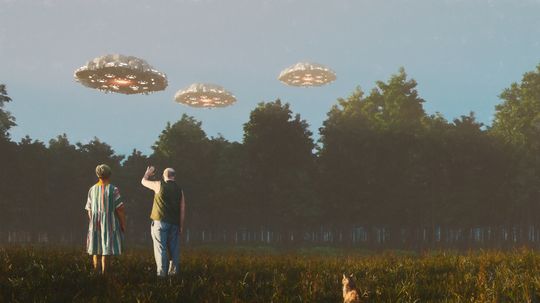Space
Explore the vast reaches of space and mankind's continuing efforts to conquer the stars, including theories such as the Big Bang, the International Space Station, plus what the future holds for space travel and exploration.
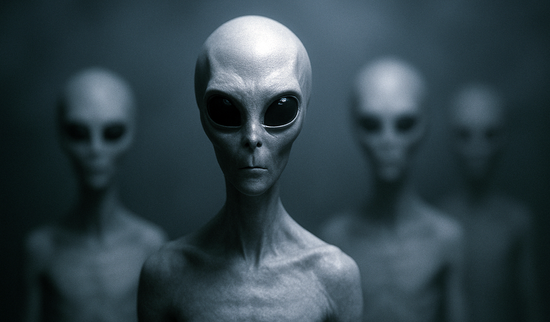
Tall Whites: The Classic Extraterrestrial Archetype

The Zoo Hypothesis: Are Aliens Watching Us Like Animals in a Zoo?
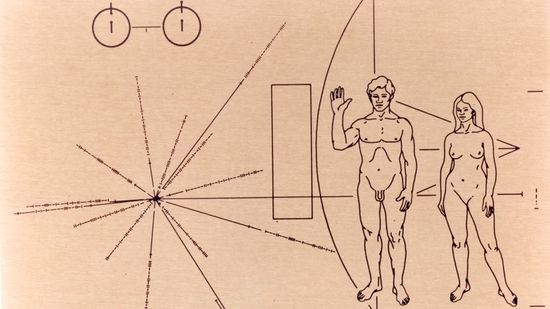
Communicating With Aliens Is Hard. Communicating With Alien AI Could Be Harder
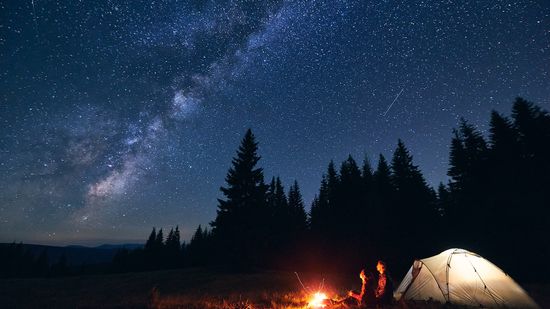
10 Types of Stars Blazing and Collapsing in Our Universe

7 Types of Eclipses: Lunar, Solar and ... Hybrid?

Why a Geomagnetic Storm Makes for Pretty Skies and Tech Scares
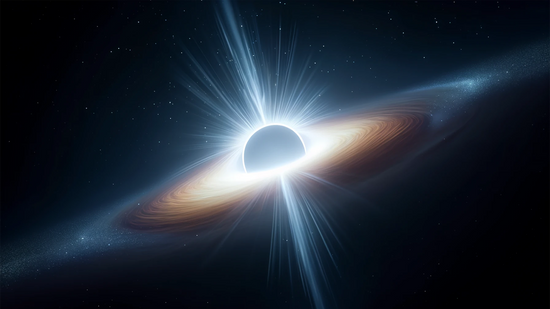
What Is a White Hole? Does the Cosmic Phenomenon Exist?
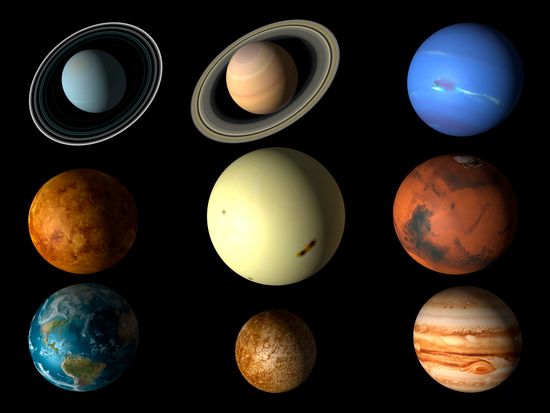
10 Best Ideas for Interplanetary Communication
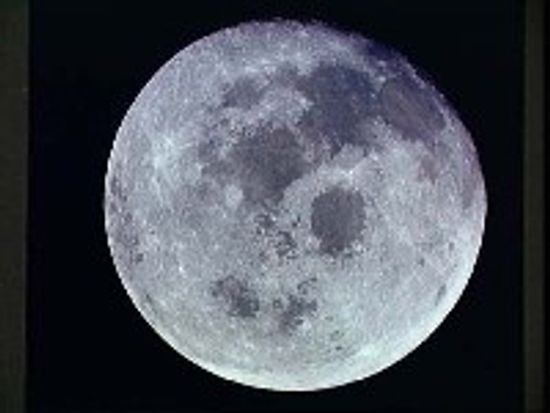
How can the moon generate electricity?
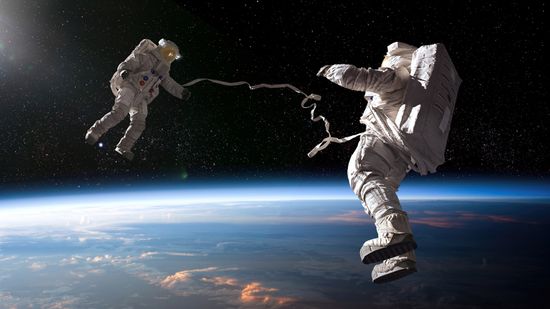
Is an Astronaut Stuck in Space a Rare Occurrence?

What Really Happened to Yuri Gagarin, the First Man in Space?

Apollo 11 One Giant Leap For Mankind
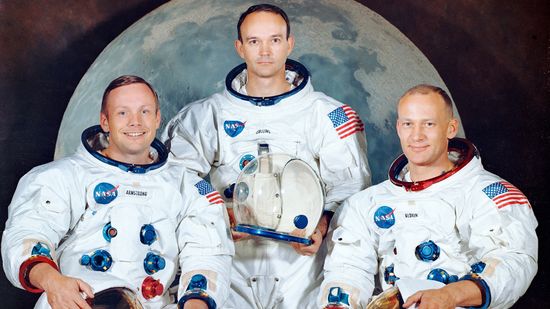
15 Famous Astronauts Who Expanded Our Universe
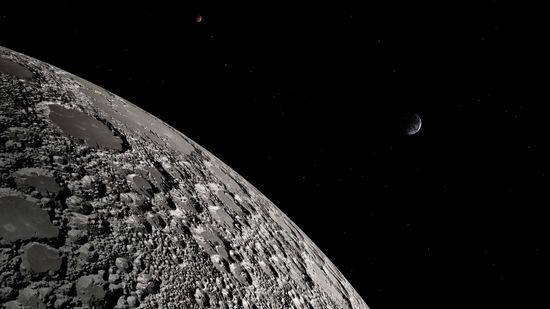
2023 India Moon Landing Was World's First at Lunar South Pole
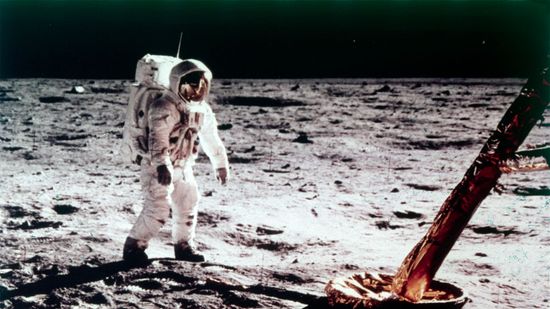
Quiz: Apollo 11, the First Moon Landing
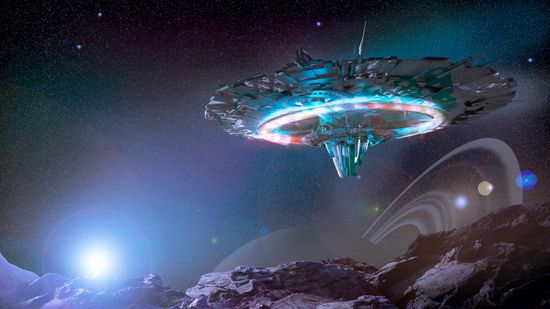
The Fastest Fictional Spaceships
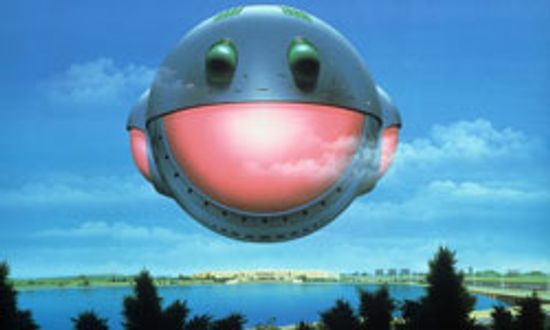
10 Fictional Spacecraft We Wish Were Real
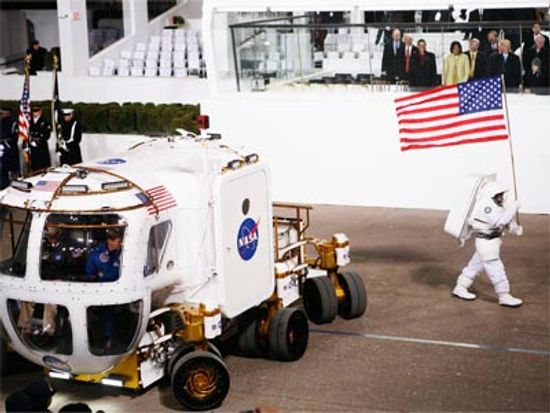
How Lunar Rovers Work
Learn More / Page 5
It was a small step for a man, a giant leap for mankind. But some people say that the moon landings never happened at all. Why all the conspiracy theories?
By John Fuller
Asteroid belts aren't quite the dense fields of gigantic spinning rocks that you may have seen in a "Star Wars" film, but they're still fascinating. In fact, the main asteroid belt may tell us how our entire solar system came into existence.
By John Fuller
Project Gemini played an important step in NASA's efforts to put a man on the moon. How did the Gemini spacecraft carry two astronauts into space and back safely?
Advertisement
Neil Armstrong may have been the first man on the moon, but he wouldn't have gotten there without fruit flies, rhesus monkeys or a dog.
By John Fuller
Humans produce plenty of trash on Earth, but you might be surprised to learn how much we've managed to leave in space. What's floating around up there? And will it come crashing down on our heads?
By John Fuller
Astronauts risk their lives in the pursuit of science. How does NASA know who can be an astronaut? And what do they do when they're not in space?
You've probably heard that staring at the sun is bad - even a few seconds can damage your eyes. But what if you looked at a solar eclipse?
Advertisement
The not-so-distant future, regular people will be able to take flights into space. So how do you score a spot on a Virgin Galactic flight?
Are we alone? Jodie Foster's character in "Contact" didn't think so, and neither do the scientists who've been listening for an extraterrestrial message for decades.
After Viking 1 captured images of what looked like a face on Mars, the public began to speculate. Had Martians carved a colossus, or was there another answer?
Foo fighters have been reported by fighter pilots since World War II. Were they with the Axis or Allies, or maybe from another planet? Read more about reports of foo fighters and censorship of foo fighter sightings.
Advertisement
The RB-47 UFO incident of 1957 was classified for years after it happened. Read how an RB-47 planed encountered two UFOs over Mississippi and Texas.
In 1964, police officer Lonnie Zamora saw an egg-shaped UFO in Socorro, New Mexico -- and the pilots. The encounter was so incredible that government nvestigators from the secret Project Blue Book even came to investigate.
Astronomer and defense researcher J. Allen Hynek is behind the UFO sighting classification system based on "close encounters." So what is a close encounter and have you had one?
By Suzie Dundas
Many people have reported alien abduction stories. Most of the abductees have shared their stories through hypnosis -- which causes wide disagreement about their validity. Read more about alien abductions.
By the Editors of Publications International, Ltd. & Desiree Bowie
Advertisement
The Ronald Reagan UFO sighting occurred in 1974 while Reagan was flying to Bakersfield, California. Reagan told a reporter afterwards, but hasn't discussed the event since. Learn more about the Ronald Reagan UFO sighting.
The North Hudson Park UFO appeared as George O'Barski was driving. The ship landed and 10 figures appeared, exited the craft, dug holes in the ground, and took off again. Read more about the North Hudson Park UFO.
The 1979 Minnesota UFO severely damaged the car of Sheriff Val Johnson while he was investigating a plane crash. What happened, and why did all the clocks start running 14 minutes behind?
The 1973 Missouri UFO brought James Richard out of bed and to his window, where he saw the UFO hovering in the trees outside. Learn about the 1973 Missouri UFO sighting.
Advertisement
Space food has come a long way from Project Mercury's paste-filled tubes. Today's astronauts select menus that include everything from macaroni and cheese to brownies. So do astronauts really eat space ice cream?
In 1965, the Valensole UFO landed near Maurice Masse's workplace, and two figures exited the ship. One of them pointed a device at Masse and paralyzed him. Learn more about the Valensole UFO encounter.
The Cash-Landrum UFO incident left Betty Cash and Vickie Landrum with severe illness and lifelong injuries. The effects of the incident were very similar to radiation poisoning. Read about the Cash-Landrum UFO incident.
The Jackie Gleason UFO tale begins with President Nixon inviting him to see aliens at an Air Force Base. He wasn't told any details and was sworn to keep the secret. Check out the Jackie Gleason UFO story.
Advertisement
In the Rendlesham Forest incident, triangular UFOs appeared in England and landed on multiple nights. Several groups of witness and investigators observed the glowing objects flying about. Learn more about the Rendlesham Forest incident.
The history of the Roswell UFO incident has a long, complicated legacy of truth and conspiracy. From the crash site to the recovered alien bodies, there is a lot of speculation -- how much is believable? Learn more history of the Roswell UFO incident.
